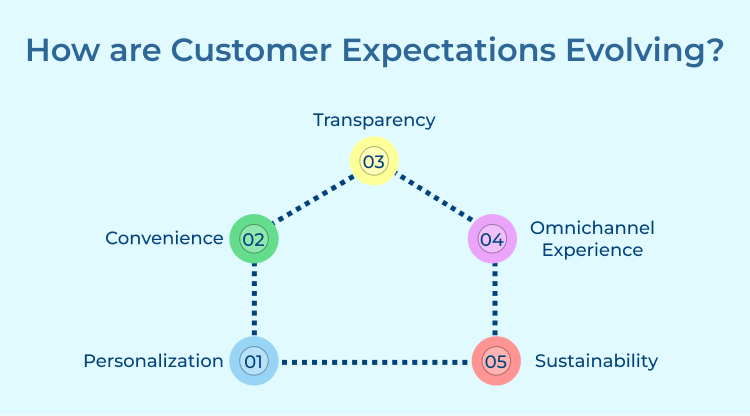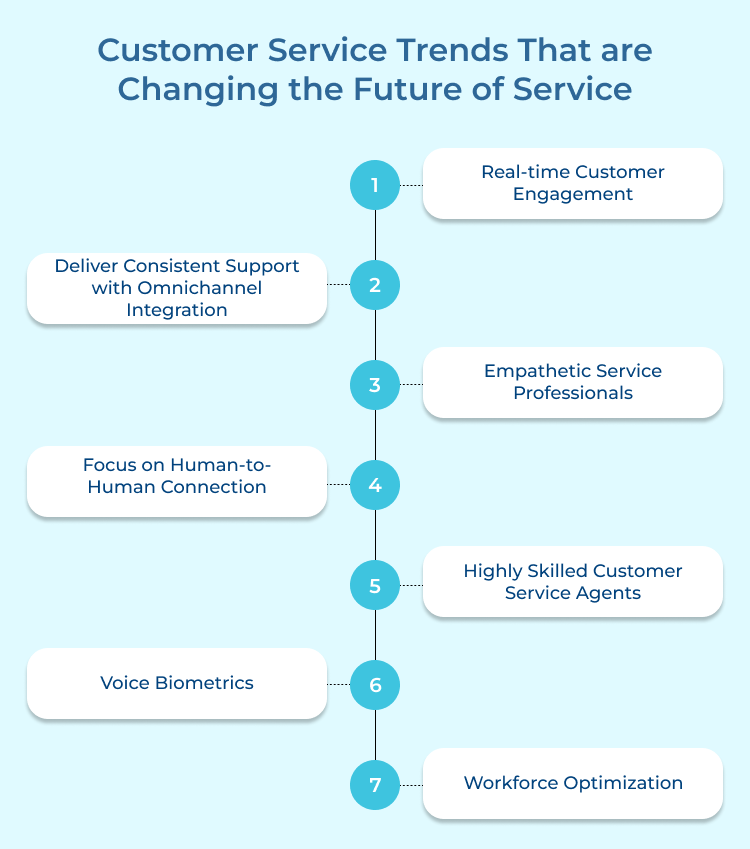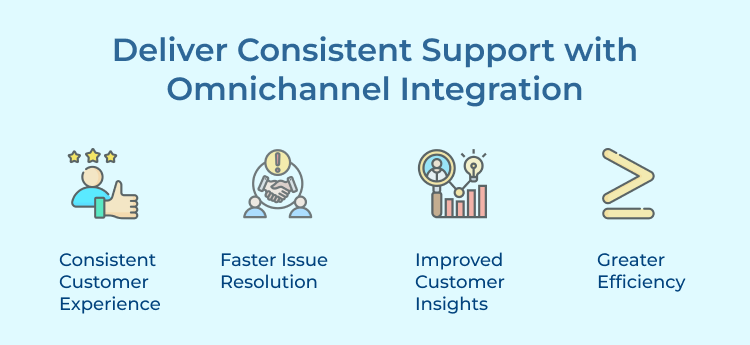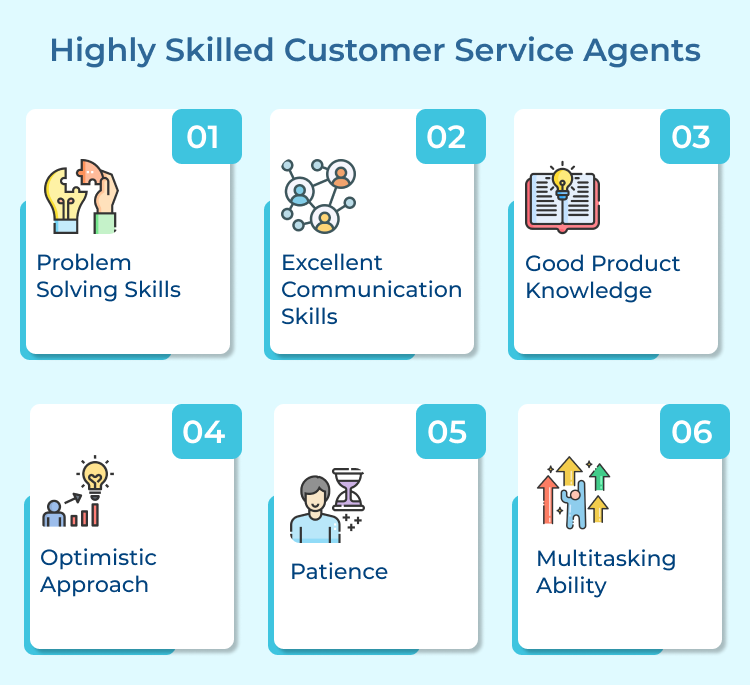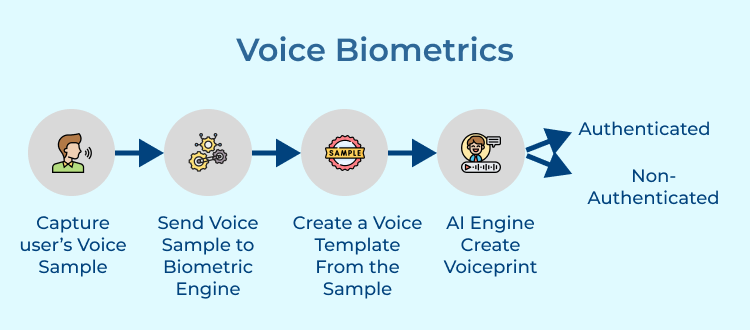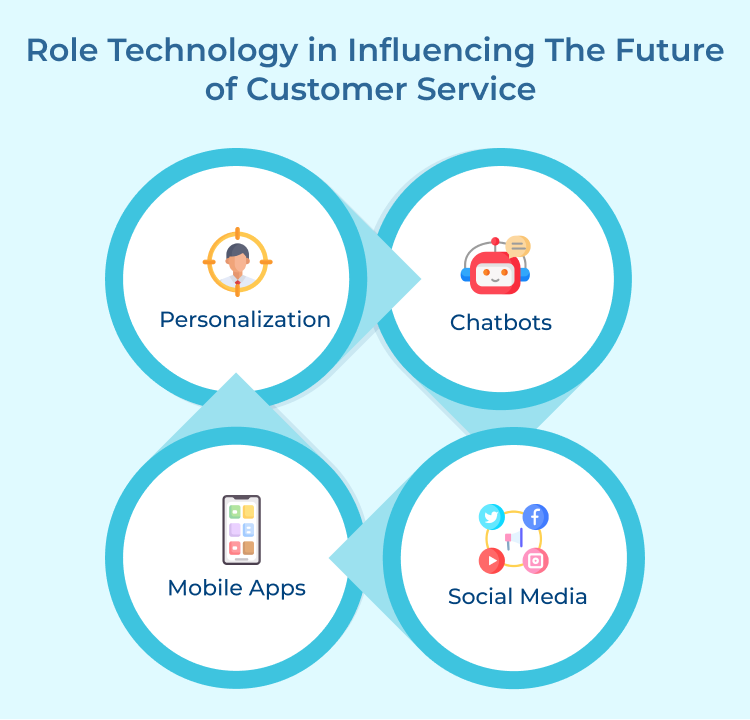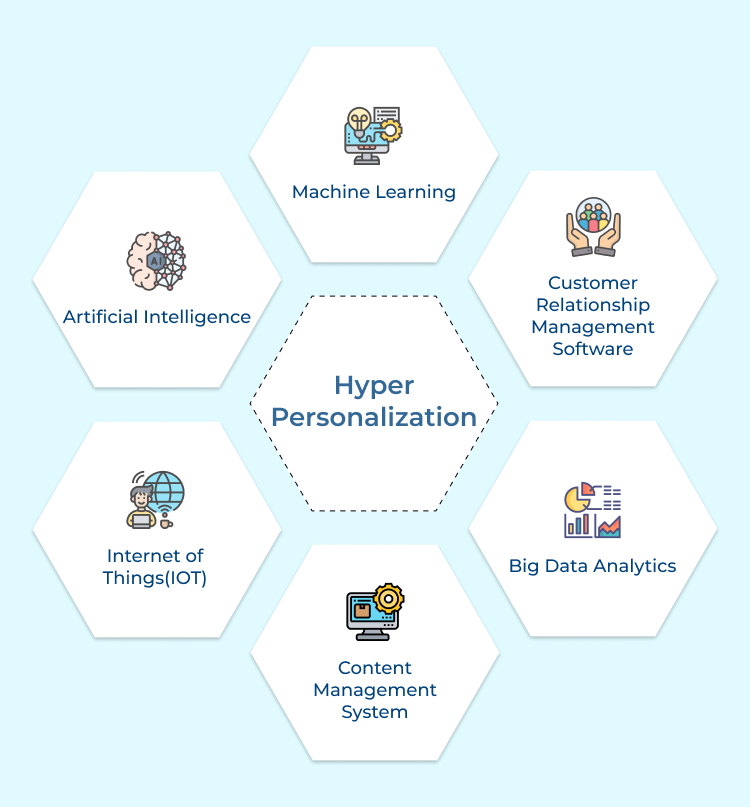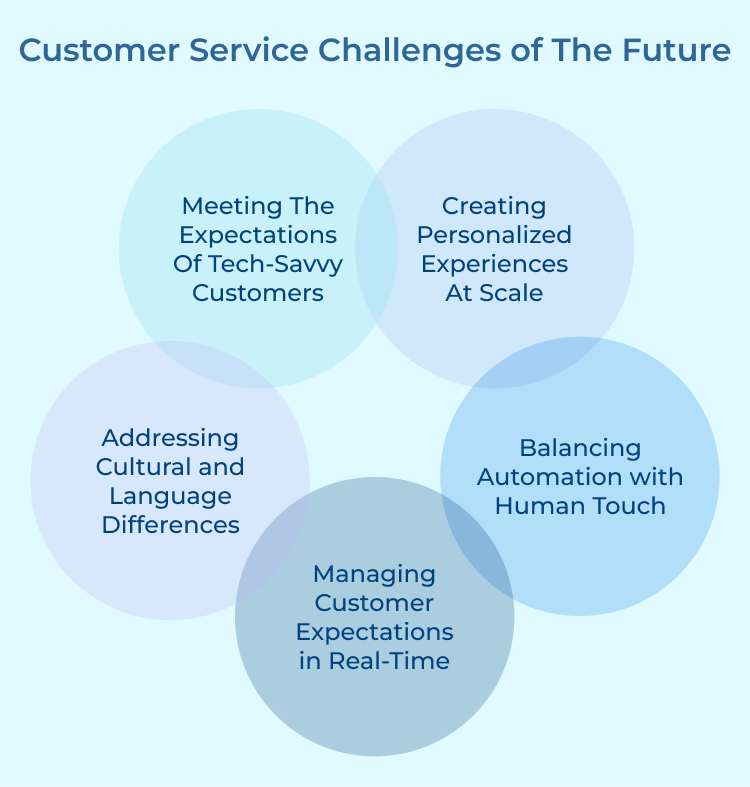-
Meeting the Expectations of Tech-Savvy Customers
The rise of social media and instant communication channels allows customers to expect fast service around the clock. It means that businesses will need to invest in cutting-edge technology and training for their customer service teams to keep up with these demands.
-
Creating Personalized Experiences at Scale
Modern customers expect personalized recommendations and tailored interactions. The support team needs to find ways to provide individualized service to a large customer base. It can be achieved through data analytics & automation, but striking the right balance between efficiency and personalization is key.
-
Balancing Automation with Human Touch
Balancing automation with the human touch is another challenge for customer service professionals. While automation can streamline processes and improve efficiency, it is important not to lose the human element of customer service. Finding ways to incorporate automation while still providing a personalized and empathetic customer experience is crucial.
-
Managing Customer Expectations in Real-Time
Instant messaging has allowed customers to expect quick responses and resolutions to their issues. Customer service teams must be able to handle customer inquiries and complaints quickly to maintain customer satisfaction.
-
Addressing Cultural and Language Differences
Companies will need to be able to communicate effectively with customers from different cultures and backgrounds as there is globalization of businesses. It will require businesses to invest in training for their customer service teams and develop strategies for addressing cultural differences.
Align with Client Expectations for a Bright Future of Customer Service
Keeping up with customer expectations is crucial for the bright future of customer service. Understanding their needs, embracing new technologies, investing in training exceeding customer expectations.
Prioritizing customer satisfaction helps businesses build strong relationships, enhance their reputation, and drive success in the competitive marketplace. The future of customer service relies on adaptability, innovation, and a deep commitment to delivering exceptional customer experiences.
